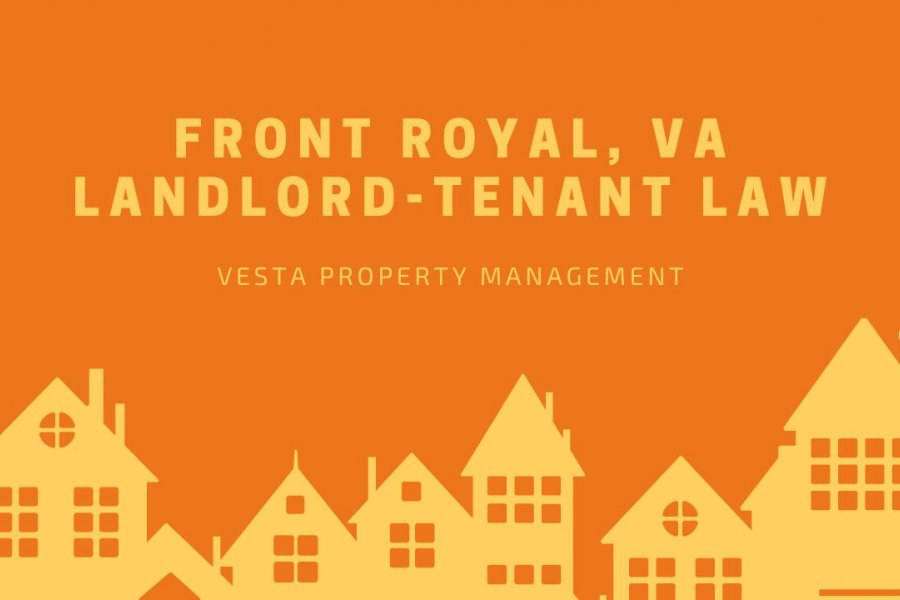
In the US, most states have their own set of local landlord-tenant laws that anyone involved with a rental must adhere to. From the obligations of a tenant to the rules surrounding security deposits, and rental fees, these laws can be confusing to understand.
However, it is crucial that both the landlord and tenant familiarize themselves with Virginia landlord-tenant laws, as failing to do so could land you in legal hot water.
Luckily, we have provided a guide to the rental housing laws that are specific to Virginia. So, if you’re looking for an introduction to the Virginia Residential Landlord-Tenant Act and how it applies to residential property, keep reading.
Virginia Landlord-Tenant Law: Tenant Rights and Responsibilities
Like most states, Virginia law outlines what the rights and responsibilities of a tenant. The Virginia renters’ rights are to live in a habitable living space, request repairs from the landlord, and receive information regarding any mandatory disclosures related to the home.
The responsibilities of a Virginia tenant are as follows:
- Pay rent on time as specified in the lease agreement.
- Maintain a safe and hazard-free dwelling unit.
- Adhere to all building and housing codes.
- Maintain clean plumbing fixtures of the rental dwelling unit.
- Use the dwelling unit and its appliances, utilities, and fixtures for only their intended purpose.
- Maintain a reasonable state of cleanliness.
- Pay utility bills on time.
- Prevent the growth of mold or mildew on the premises.
- Remove trash.
- Never deliberately or negligently damage the dwelling unit.
- Respect neighbors and fellow tenants.
- Never tamper with or remove a smoke alarm or carbon monoxide detector.

Virginia Landlord-Tenant Law: Landlord Rights and Responsibilities
Just like tenants, landlords have their own set of rights along with their responsibilities. Landlords in Virginia have the right to evict tenants who violate the lease or written rental agreement in addition to the right to regularly collect rent payments. In Virginia, eviction cases are handled through an unlawful detainer action, which is the legal process a landlord must follow to regain possession of the unit.
Here are the responsibilities of landlords according to Virginia rental laws:
- Provide a habitable dwelling unit for the tenant.
- To make requested repairs within 30 days.
- To ensure a sound dwelling unit structure.
- Provide working electricity and plumbing.
- Provide heating and air conditioning.
- Ensure proper ventilation.
- Provide running water.
- Provide proper notice when entering the unit.
- Provide proper written notice when increasing rent.
- In the event of an eviction, provide written notice and follow the legal procedure.
Virginia Residential Landlord-Tenant Act: Overview
Landlord’s Right to Enter the Home
Can landlords enter without permission in Virginia? Yes, landlords can enter the property without permission in emergencies that threaten the tenant’s safety or well-being.
Otherwise, respecting a tenant’s privacy is essential when collecting rent and managing a rental. Virginia landlord-tenant law requires landlords to provide tenants with at least 24 hours' notice before entering the premises, except in emergencies.
The Condition of the Property
Landlords in Virginia have a responsibility to ensure that their tenant lives in a habitable home under the residential landlord and tenant act. But what tasks fall under this responsibility?

Here are just some of the things that landlords must provide as per Virginia landlord-tenant law to ensure that their space is habitable and safe to occupy:
- Working electricity.
- Running water that is both hot and cold.
- Adequate ventilation in the home.
- Functioning heating system.
- Working air conditioning unit.
- Functioning plumbing system that is up to code.
Virginia Housing Laws on Discrimination
Under the Fair Housing Act, it is prohibited to discriminate against tenants based on race, color, nationality, religion, sex, familial status, or disability. The Virginia Fair Housing Board also adds protection for age, as it is prohibited to evict a tenant due to their age if they are over 55 years old.
This law governs the legal process for lease and rental agreements, marketing and advertisements, tenant screening, rent pricing, security deposits, and all other landlord-tenant communications throughout a tenancy.
Virginia Security Deposit Laws
According to Virginia residental landlord-tenant laws, landlords may only charge up to two months’ rent as a security deposit. After the lease agreement ends and the tenant has moved out of the unit, the landlord has 30 days to return the tenant's security deposit or what is left of it after deductions for unpaid rent or repairs.
If the landlord wrongfully withholds the tenant's deposit at the end of the lease or rental agreement, they may face tangible legal consequences such as fees or fines.
A landlord may deduct funds from security deposits to cover the cost of missed rent, damages that are beyond normal wear and tear, unpaid utility bills, and administrative costs for a new written lease agreement.

Required Disclosures from the Landlord
There are many disclosures that a landlord in Virginia is required to provide to tenants prior to their lease signing and move-in date. According to the Virginia Residential Landlord-Tenant Act, landlords need to provide disclosures on the following. Not only are these disclosures legally required, but being transparent and truthful with tenants also helps build trust and fosters a positive landlord-tenant relationship.
- Lead-based paint: If the unit was built prior to 1978, then the landlord must disclose information regarding lead concentrations.
- Move-in checklist: Tenants must be provided with a move-in checklist detailing the condition of the unit.
- Authorized agents: Tenants must be provided with the names and addresses of anyone involved with the management or ownership of the unit.
- Location adjacent to military institutions: Landlords must inform their tenants if the rental home is near a military institution as it may be in a “noise zone” or an “accident potential zone”.
- Defective drywall: Tenants must be informed if the drywall in the home is defective.
- Methamphetamine manufacturing: Landlords in Virginia must disclose to their tenants if they have any knowledge of the property being used in the past to manufacture methamphetamines.
- Mold: Any mold on the unit must be disclosed to tenants prior to moving in.
- Shared utilities: Landlords must inform tenants how to pay utilities that are to be split between multiple tenants or units.
- Demolition or displacement: If there is a multifamily home where the tenants will be displaced within six months due to demolition, rehabilitation, or conversion of the unit, then the landlord must disclose this.
Virginia Tenant’s Right to Withhold Rent
A Virginia tenant does not automatically have the right to withhold rent payments agreed upon in the lease if the landlord fails to provide repairs after they have been requested.

If a landlord does not comply with the repair request, the tenant may file a Tenant’s Assertion with the District Court. The court will then decide whether or not the tenant will be able to withhold rent payments from their landlord. In some cases, the court may also impose deadlines or conditions for the landlord to make the necessary repairs.
Tenants may also be allowed to break their lease early if you fail to perform your duties as a landlord, though this too generally requires approval through the court process.
Small Claims Lawsuits
Disputes between landlords and tenants can be fairly common. In Virginia, the small claims court will hear cases valued at $5,000 or less. A dispute may happen when a lease is broken or a tenancy is terminated early.
In such situations, the landlord may require the tenant to cover the cost of cleaning, repairs, redecorating, rental advertising, reasonable attorney fees, and any unpaid rent until a new tenant moves in or the lease term expires.
If the matter cannot be resolved, the landlord may need to pursue an unlawful detainer action in court to regain possession of the property. At this stage, working with an attorney is strongly recommended, as an attorney can navigate the filing process, represent the landlord in court, and ensure that the landlord’s rights are fully protected.
Since Virginia eviction and collection procedures can be complex, consulting with an experienced attorney before going to court is often the best step to secure a favorable outcome.
Get Help from a Property Management Company
The experts at Vesta Property Management can help you navigate issues with tenants and understanding Virginia law surrounding rental properties. Our expert team is here to offer guidance on all your rental management needs from lease agreements and tenant screening to property marketing and maintenance. Contact us today!
Disclaimer: This blog should not be used as a substitute for legal advice from a licensed attorney in your state. Laws change, and this post might not be updated at the time of your reading. Please contact us for any questions you have in regards to this content or any other aspect of your property management needs.